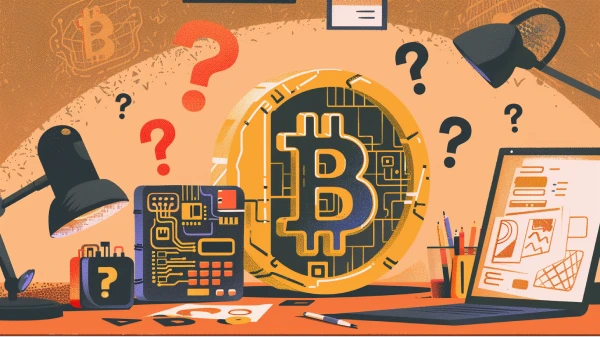As the value of Bitcoin continues to rise, so does the volume of scam attempts. A key insight for Bitcoin owners is that most scams don’t involve complex hacking. Instead, they exploit human psychology through social engineering tactics. While some attacks come in the form of malware, most often, bitcoin is stolen by tricking people, not by hacking computers.
Understanding the types of Bitcoin scams and how to protect yourself against them is essential for any responsible Bitcoin owner.
Common Types of Bitcoin Scams
Social Engineering
Social engineering is when someone tricks other people into giving away confidential information. For example, there are two common methods.
First, the romance scams. These scams are alarmingly common. If someone you met online suddenly asks you to send bitcoin or offers an investment opportunity, it’s likely a scam. Romance scams thrive on emotional manipulation, especially if you have never met the person face-to-face.

Second, elder fraud is another serious concern, with scammers pretending to be someone they are not. For example, someone can pretend to be a relative asking elders to send bitcoin urgently. These con artists exploit trust and urgency. It is essential to double-check any such requests with other family members or through direct channels.
Phishing
Phishing scams are one of the most widely used scam methods across the Finance and Banking industry. A phishing scam is characterized by the impersonation of your bank, Bitcoin wallet, or exchange provider. This can be done through fake emails, lookalike websites, or deceitful links. Phishing emails usually contain a link that will redirect you to a website impersonating your exchange or wallet. They will ask you to enter your account details in an attempt to gain access to your real account.
Giveaways and Impersonations on Social Media
Giveaway and impersonation scams have received a lot of media attention recently, and are one of the primary tools scammers use to steal Bitcoin or gain access to your wallet. These social media scams typically promise to send back double the amount of Bitcoin you send them, or ask you to send Bitcoin for the chance to win much more.

Giveaway and impersonation scams on social media are often successful because they impersonate reputable or well-known individuals and use fake accounts or “bots” to make their account activity seem legitimate. When approached by these “opportunities”, remember that if it seems too good to be true, it probably is.
Artificial Intelligence (AI) Scams
As AI technology advances, scammers can create more sophisticated and convincing scams. These AI scams can take various forms, but some of the most common involve using deepfake technology.
Deepfake technology uses AI to create realistic audio and video content. Scammers can use deepfakes to impersonate well-known individuals or trusted contacts. For example, a scammer might use a deepfake video to pose as a celebrity or a business executive, asking you to invest in a fraudulent Bitcoin scheme.
In early 2024, a finance worker at a multinational firm was deceived into paying $25 million to fraudsters. The criminals used deepfake technology to impersonate the company’s chief financial officer in a video conference call.
There have been instances of deepfake video scams in the Bitcoin space. For example, the Michael Saylor AI scam involved a deepfake video encouraging viewers to scan a QR code that directed their bitcoin to an address controlled by the fraudsters.

Ponzi Schemes
A Ponzi scheme is a simple, commonly used scam that attracts new investors with the promise of unusually high returns. In a Ponzi scheme, a promoter convinces people to invest in their scheme and pays out “returns” that are actually payouts from money deposited by newer investors. The cycle continues until new investors cannot be found or the promoter takes the investment money and disappears. Ponzi schemes are a common type of pyramid scheme and are usually easy to spot. Honest people or projects will not guarantee a 100% return or more on your Bitcoin.
Blackmail
Blackmail, whether via phone or email, is an attempt by hackers to use fear to persuade you to give them access or send them your Bitcoin. Usually, the scammers will say they have incriminating evidence against you and threaten to disperse this information to your close contacts unless you send them Bitcoin. More than likely, these claims are false. The hackers do not have any information about you and hope that by sending out enough emails or making enough phone calls, they can convince at least a few people to send them Bitcoin.
Malware
Malware is a common and potentially devastating threat to the security of your Bitcoin wallet. Typically, malware is installed on a computer or personal device when the individual believes they are downloading a software or program from a reputable source. In reality, the malware is designed to look like a reputable software application as it monitors your web browser for Bitcoin wallet information.
Guidelines for Protecting Your Bitcoin
- Never give your wallet seed or online account password to anybody, even somebody claiming to be a representative of a Bitcoin company.
- Do not believe anyone promising free bitcoin, guaranteed returns or abnormally high returns.
- Only open email from addresses you know.
- When clicking a link, double-check the link before you click and after you arrive at the website.
- Save your exchange and any Bitcoin websites you visit as bookmarks, and access them directly from the bookmark.
- Only download software applications and programs from reputable sites operating with a web address beginning with “https”.
- Keep your antivirus software up to date.
- Carefully research any exchanges, wallets, or investment opportunities before proceeding.
- Use 2-factor authentication on all accounts, preferably not SMS. You can use an app like Google Authenticator.
- Double-check all addresses before sending bitcoin.
Contact With River
If you need any support, only contact us directly via River Support. Scammers impersonate companies and people all the time. Don’t trust anyone who says they’re from River and requests bitcoin or access to your account, even if they use a sense of urgency.
Turn on your River app notifications, so you don’t miss out on any alerts.
➤ Learn more about Bitcoin addresses.
Notice: River does not provide investment, financial, tax, or legal advice. The information provided is general and illustrative in nature and therefore is not intended to provide, and should not be relied on for, tax advice. We encourage you to consult the appropriate tax professional to understand your personal tax circumstances.Key Takeaways
- If you are ever in doubt, contact River’s Client Services department for assistance.
- Bitcoin is valuable, providing opportunities for scams to profit off of uninformed users.
- Bitcoin transactions are irreversible, so bitcoin should be sent more cautiously than a credit card payment. If you send bitcoin, you should assume you will never get it back.
- Most scams are social attacks, not technological hacks or viruses. Do not trust people who promise enormous gains, free money, or who ask for bitcoin.

